-
 Ahdaaf 2018 Predictions
1 year ago
Ahdaaf 2018 Predictions
1 year ago -
 Fahad Al-Ghesheyan: Cruyff of the Desert
4 days ago
Fahad Al-Ghesheyan: Cruyff of the Desert
4 days ago -
 Iraq’s Ali Adnan explains reasons for his Atalanta exit
4 weeks ago
Iraq’s Ali Adnan explains reasons for his Atalanta exit
4 weeks ago -
 Asian Cup star Mohanad Ali to remain in Iraq until the end of the season
2 months ago
Asian Cup star Mohanad Ali to remain in Iraq until the end of the season
2 months ago
The Birth, Death and Re-Birth of Lebanese Football
“The start of a revolution”. Under this title, Waddah Al-Sadeq stated his opinion on the dire footballing situation in Lebanon. The passionate Ansar fan shocked football fans as he sent it out on Facebook for all to see: “Nejmeh fans represent me”.
Nejmeh and Ansar – Violence, Corruption, Sectarianism and Hatred
The heated Lebanese Derby, also known as the Derby of the Capital Beirut, has been marred by violence, corruption, hatred and sectarianism. On the 8th of December in 1968 the seeds were sown for what is now one of the fiercest yet underrated derbies in world football. Saadeddine Al-Berjawi entered history by becoming the first man to score in the derby, when Nejmeh emerged victor against the Green side of Beirut on that very evening.
The birth of Lebanese football
Uniquely known as the “Castle of the Color of Wine” (or burgundy), Nejmeh only began enjoying consistent league success at the turn of the century. The club was founded by a bunch of young, ambitious men after Lebanon gained its independence in 1943. Headed by Anis Radwan, the group of young boys challenged local teams in the Hamra and Jabal Al-Bahar regions of Beirut. The most important of these challengers were Al-Taawon, a team who in hindsight was pivotal in the establishment of Nejmeh.
In one of the games from the rivalry between both teams, luck was on Nejmeh’s side when they defeated Al-Taawon and subsequently gained all their players as part of an agreed pre-match clause. Among these players were Hassan Yamout, Hassan Taqoush, Safi Attar, Mustafa Al-Daouk and Kamal Chatila. Chatila was honest about his transfer to Nejmeh, claiming that “most of the players at Al-Taawon were eager to play for an official team recognised by the FA”. In 1947, Nejmeh were officially recognised as a football club.
The name of the club itself, Nejmeh, came from the word “star” in Arabic. Anis Radwan set up a meeting to discuss the matters of the team and what name it would use to go forward from that point, and as the team were filled with stars (nujoom), they called themselves the ‘Nejmeh’.
This was similar to the founding of “the Green Boss”, Ansar, who unlike Nejmeh won a massive 26 trophies before 2000. Ansar were once Guinness World Record holders, winning 11 consecutive league titles in a row during the 90’s.
“All of us Lebanon … All of us Ansar”. The club’s motto since 1948, when a group of young Beirutis set up the first Administrative Board at the club headed by Mustafa Al-Shami. It was only 3 years later when Misbah Dougan, then head of the Administrative Board, formally requested an official licence for the club allowing them to play football on all Lebanese grounds.
Ansar’s nomenclature originated from the word “victory”. They were to be called “Al-Intisar”, but seeing that there was another club under that name in Lebanon, Mustafa Al-Shami proposed the name “Ansar” in remembrance of the ‘Ansar’ (supporters) of Prophet Muhammad.
Ansar were then oddly recognised as a team from the governorate of Mount Lebanon rather than their birthplace, Beirut. Ansar suffered as a result of their new location in Al-Ghobeiry, where they had to remain until an association in Beirut freed up. This was the main factor behind the separation of Nejmeh and Ansar until 1968. The “Green Boss” were finally granted an office in Beirut 14 years later, subsequently winning the Second Division in 1966 before meeting their source of happiness in 1967: The Lebanese Premier League.
The peak years
But the derby as previously mentioned was marred by political and sectarian conflict, leading to many seasons without official domestic tournaments. This was evident when they met in 1990 after 15 years and 66 days without league football in Lebanon. Ansar, though, were set to go on the road towards unprecedented success at the time and started their pathway with a bang, leaving Nejmeh empty handed with a 2-0 win at their Stadium.
Nejmeh, though, did the impossible and hit Ansar where it hurt in the 1992-1993 season. Ansar were undefeated in the league for 18 years, courtesy of the civil war that halted the league, but in reality the streak stretched out over 91 games. Mahmoud Hammoud, recently sacked by 2015 Lebanese Champions Ahed and one of the most prolific strikers in his time scored the equaliser against an Ansar side whose lone goal came from their current manager at the time of writing Jamal Taha. Albeit losing out in the “home” derby match they finished 9 points ahead of the “Castle of Burgundy” come end of the season, thanks to a valuable 3-0 thrashing of their rivals in the return match.
Errol McFarlane was one of the better foreigners to come across Lebanese football and had 4 stints in the country, with most of his time spent at Nejmeh. His career-defining moment in Lebanon could as well be the brace he scored against Ansar in 1999. The Beirut Municipal Stadium was on fire thanks to McFarlane, with a diving header and a cheeky slice under the goalkeeper’s legs enough for 3 points against Ansar. Here is what McFarlane had to say about the derby post-match:
How important was this match retrospectively? At the end of the 1999-2000 season, Nejmeh were crowned winners of the Lebanese Premier League after 11 consecutive seasons of the Greens taking over Lebanese football. Errol McFarlane’s arrival and performance proved to be the spark Nejmeh needed to be crowned as Lebanese Champions for the first time; officially.
That wasn’t the last time the teams would clash for the league title but their rivalry was nearing a hindrance with the emergence of Ahed and Safa, both of whom would challenge for honours for the most part of the 21st century.
In the home match for Ansar in the 2004-05 season, they led 2-0 for the first 90 minutes after a penalty from Felix Kennedy and a rocket from Malek Hassoun ensured their lead and all but the win. But Nejmeh had other ideas when Mohammad Halawi blasted the top of the net with a goal in the 91st minute of the match, only to be followed by an equaliser at the death by second-half substitute Ali Nasseredine. This point would later give leverage for Nejmeh against Ansar, when they met on the final day of the season.
More than 25,000 fans watched the title decider at the Camille Chamoun Stadium. On June 16, 2005, the anticipated match-up between the teams finally commenced. With both sides on 43 points but the Burgundy ahead on goal difference (by +20), Ansar needed a win by all means possible. It took 55 minutes for someone to score and that someone was Abbas Atwi for Nejmeh. With a draw a viable result for Nejmeh and just under 35 minutes left for them to hold out, all signs pointed towards them.
But Felix Kennedy attempted to pre-empt Nejmeh’s title party with an equaliser in the 80th minute, only for his goal to be cancelled out by Mohammad Kassas – the man who missed a sitter in the previous 2-2 draw between the teams. The craziness did not end there, this time Mahmoud Shahoud making sure Ansar stayed within touching point of the title. It was 2-2 with 7 minutes to go. Although like the 20th century was Ansar’s, the beginning of the 21st century was Burgundy by all means. Nejmeh proved that with their 4th title in 5 seasons.
In 2008, it was neither Nejmeh or Ansar who had the final laugh – it was Ahed. With the latter on 46 points come the final week of the season, a win was a necessity with the hope of shared points between Ansar and Nejmeh, both of whom were on 47 points. That’s right, they would face each other in a title decider yet again but with the added factor of Ahed who were no easy side.
Ahed faced Tadamoun, and Nejmeh faced Ansar. The roles were reversed on this occasion, with Ansar leading the table on goal difference. Mohammad Ghaddar, who scored his 22nd of the season, helped Nejmeh to a lead and saw them go top of the table for the rest of the match. But just like Ansar were winning 2-0 for 90 minutes in 2004 before conceding, Nejmeh did the same and conceded in the 90th minute. This led Ansar to believe that they would be crowned as champions, only for the announcer to announce that Ahed had just scored a late winner against Tadamoun in injury time. Ansar became hesitant, desperately needing a goal under any circumstance. But the referee’s whistle was much faster than the players, and the derby ended up producing a third winner: Ahed.
Since that very season, Ansar have missed out on the league title while Nejmeh were only crowned as league winners twice in the next 7 seasons thanks to the re-emergence of Druze side Safa.
“Till death do us part”
In the midst of all these football matches, fans’ behaviour was an issue for everyone. In 1984 during the years without league football, Nejmeh players reportedly told their fans to cause a problem and thus cancel the match when they were losing to Ansar 2-0 in the Eid Al-Adha tournament.
According to a Tadamoun Beirut player during the 1980’s, the “fights between Nejmeh and Ansar fans were considered normal. They would also clash which is why the attention on it wasn’t heavy”.
More so, fans from both sets of teams were willing to die for their teams. Among the quotes back then were the following:
“We used to leave jobs and school just to watch our team play in a friendly match.”
“Nejmeh! Nejmeh! Nejmeh! Even if you burn me, I am Nejmeh.”
“Our only source of happiness came from watching Ansar”.
In 1994, when Nejmeh once again lost out to the title against their rivals, Tunisian referee Naji Al-Joueini’s life was on the line. After his shocking performance, giving the green light to an Ansar offside goal before denying Nejmeh a chance to equalise at the end of the match – when an uncalled for yet blatant handball by an Ansar defender in the penalty box sent Nejmeh fans, staff and players into lunacy and Al-Joueini’s life into serious danger as fans swarmed onto the pitch with all their might.
In the 1996-97 edition of the Lebanese Premier League, Syrian referee Osama Al-Shami didn’t account for 3 Nejmeh penalties against Ansar. This resulted in the opposition fans going absolutely nuts after the final whistle. Ansar’s lone goal was a jab in the heart for the “Nejmewe” fan base, who started breaking chairs and more in the aftermath.
After the home clash in 2004-05 where Nejmeh scored two in injury time, the scenes were not pretty at all as the players got into a fight with the referee.
Nejmeh fans blamed corruption for most of their league title losses and much of this talk was towards Rahif Alameh, once President of the Lebanese FA, whom they considered to be Ansar’s puppet – and there were very strong allegations that he was the man behind Ansar’s record-breaking streak of league titles.
In fact, in 1988 when Ansar won their first title, there were only 3 teams left in the league. With both Tadamoun Beirut and Nejmeh withdrawing from the competition – Nejmeh due to complaints about the bias in favour of Ansar – Ansar won 8 of their 10 games to be crowned Lebanese Premier League Champions with a mere points 18 points in one of the bizarre league campaigns in football.
The death of Lebanese football…
“I think football is dying, yes,” explained Bilal Arakji, a Nejmeh board member, to James Montague as his team romped to a surprisingly easy 3-0 victory.
It was only a matter of time before corruption and violence got the better of Lebanese football.
Bans on fan attendance, dirty stadiums, sectarian fights, violence, no electricity, swearing at public figures, poor pitches and death became the ingredients of a Lebanese football evening. Lebanese football was not just in decline, but when the Lebanese Derby fails to grab attention you know the league’s spark has died.
Whereas football in many countries is usually the only thing that pry people away from politics and conflict, in Lebanon football was politics. Clubs winning the trophy became marketing ploys for certain organisations rather than a sense of happiness. Winning became secondary to political victory. No one cared anymore. Football was just an excuse for the violence.
Above all, we have the match fixing issue which ruined what could have been the best moment in Lebanese football history. Just when it seemed like everyone would rejoice for the times of their lives, corruption ended any hope of that. Lebanese football: dead.
The re-birth of Lebanese football is slowly approaching. Yet, the “revolution” mentioned by the Ansar fan in the opening sentence happened just last week: on March the 13th, 2016. Fans were banned yet again from the stadiums due to the FA being afraid about outbreaks, but the fans’ actions have showed that they will *only* fight about football and not politics. This, at least, is a step forward…
The re-birth of Lebanese football
Fans took to the streets of Beirut, meeting at Al-Mashrafiye, to ensure that they force the FA to repudiate their decision of banning fans from stadiums. Nejmeh supporters constantly reminded their mates of the meeting spot and the time to ensure success of this mini-revolution. The little of what was left from Lebanese football fans were sick and tired of the situation at hand.
Whereas in 2000, Nejmeh’s average attendance would eclipse 20,000 and their title winning match against Hekmeh saw over 50,000 fans attend, numbers have now decreased to 3,000 per game and no more than 8,000 for the derby or a title win. The league as a whole has an average attendance of around 700 fans per game, a substantial decline from previous figures.
Current league leaders Safa are suffering themselves from the empty terraces, with not more than 500 following the team across stadiums in Beirut, Saida, Bourj Hammoud and Zgharta. With continued feeling of unease going to watch football in Lebanon due to quality and safety, a long well-planned process is vital in ensuring a future for the game in the nation.
Fans have officially been allowed back into stadiums after the successful mini-revolution done by Nejmeh fans, with the hope of provision of the civil defence’s services to prevent outbreak and conflict during matches, but if the Lebanese FA cannot guarantee safety at football matches then Lebanon will go right in with Yemen, Iraq and Syria – all of whom are not allowed to play continental competitions at their home stadiums.
Furthermore, there has been the matter of the recent meeting at the Lebanese FA. There have been many complaints regarding the treatment of Lebanese football and the way the league is run. Unfortunately, only 5 out of the 12 clubs in Lebanon had representatives show up at this relatively important meeting. Nejmeh, Ansar, Ahed, Nabi Chit and Racing – most of who are ‘elite’ clubs in the Lebanese League – were the only clubs present, showcasing the lack of care and effort from the side of clubs too.
Nevertheless, the club representatives suggested the following changes to be made, all of which will be taken into consideration and put into place before the beginning of the 2017/18 season:
- Searching for the possibility of making players contracts professional rather than semi-pro
- Caring about youth football and the age groups that come under the hierarchy
- Abolish the league-tie (similar to cup-tie) rule, which doesn’t allow a local player to move to another club mid-season
- Permitting clubs to sign 4 foreigners as per the AFC’s rules: 3 foreigners of any nationality alongside a 4th, Asian nationality foreigner
- Searching for a viable and sustainable plan to organise fan attendance
- Communicating with banks to support and sponsor the league
Most of these rules have been deemed unnecessary and detrimental to the Lebanese football game, and with collaboration from both sides (the FA and the clubs) slowly increasing, the re-birth of Lebanese football may come sooner rather than later.
The cooperation between Nejmeh and Ansar fans at such a torrid time shows that there is hope for a game destroyed by fans, authority figures, referees and politicians. Despite all the differences, there is one love over everything that shines like a diamond: football.
- Nejmeh vs. Ahed: Preview - December 3, 2016
- The Birth, Death and Re-Birth of Lebanese Football - March 29, 2016
Similar posts
-
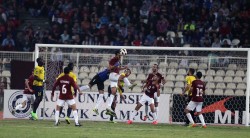 Domestic Leagues
Domestic Leagues
Nejmeh vs. Ahed: Preview
-
 Top 5 Goals of the Week
Top 5 Goals of the Week
TOP 5 GOALS OF THE WEEK: SEASON 1, EPISODE 1
-
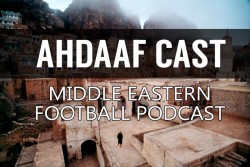 PodcastUncategorized
PodcastUncategorized
2015 REVIEW PODCAST
-
 Podcast
Podcast
EP1: MIDDLE EASTERN FOOTBALL PODCAST FT. BEYONDTHEPITCH & DANTANI
-
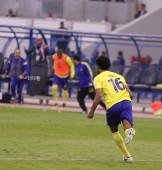 Iraqi Premier LeaguePersian Gulf Pro LeagueQatar Stars LeagueSaudi ALJ League
Iraqi Premier LeaguePersian Gulf Pro LeagueQatar Stars LeagueSaudi ALJ League
Talking Points: Around the Middle East (December 10-15)
-
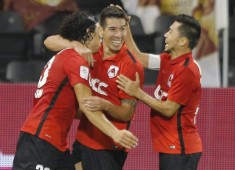 Arabian Gulf LeaguePersian Gulf Pro LeagueQatar Stars LeagueSaudi ALJ League
Arabian Gulf LeaguePersian Gulf Pro LeagueQatar Stars LeagueSaudi ALJ League
VIDEO: Domestic Weekly Review | December 1-5

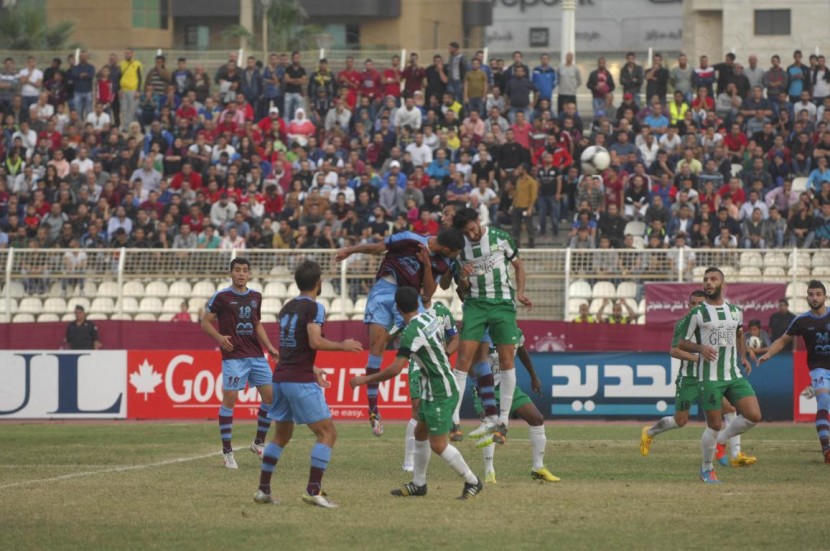
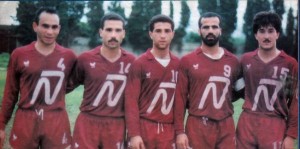
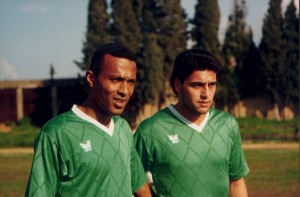
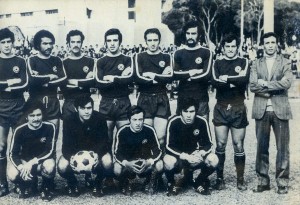
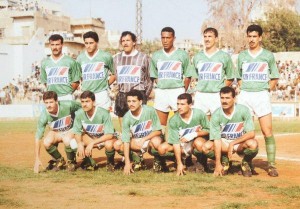
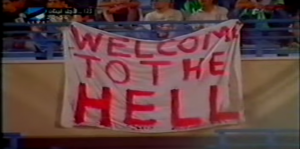
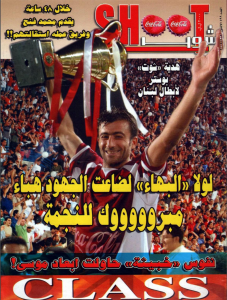
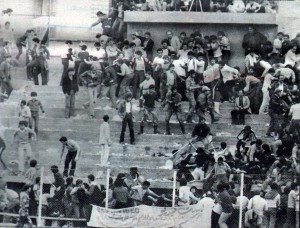
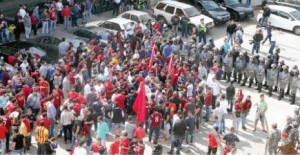
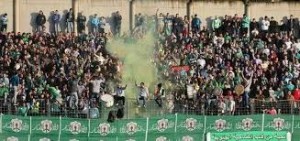
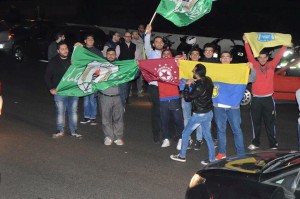
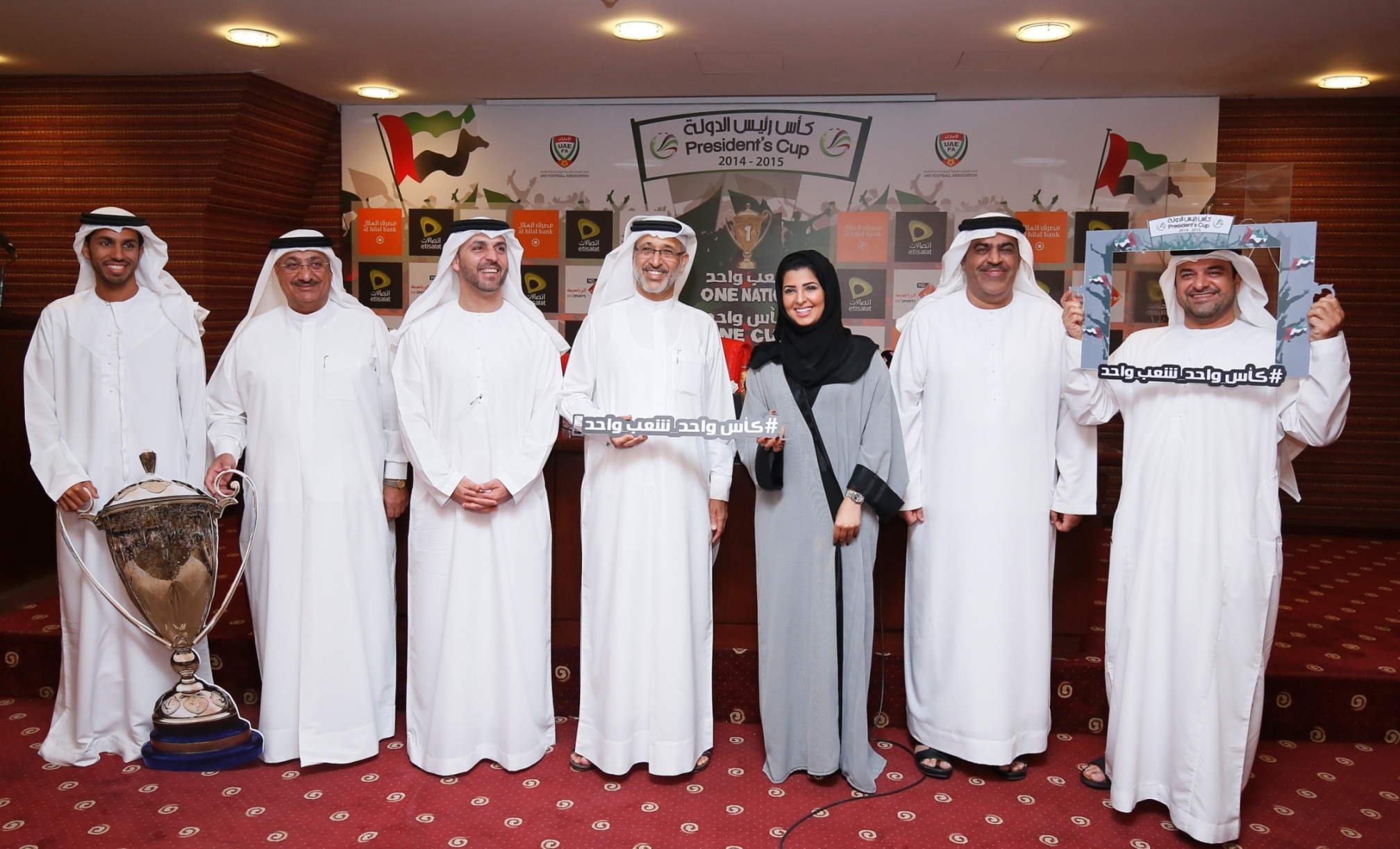





Pingback: The Birth, Death and Re-Birth of Lebanese Footb...()